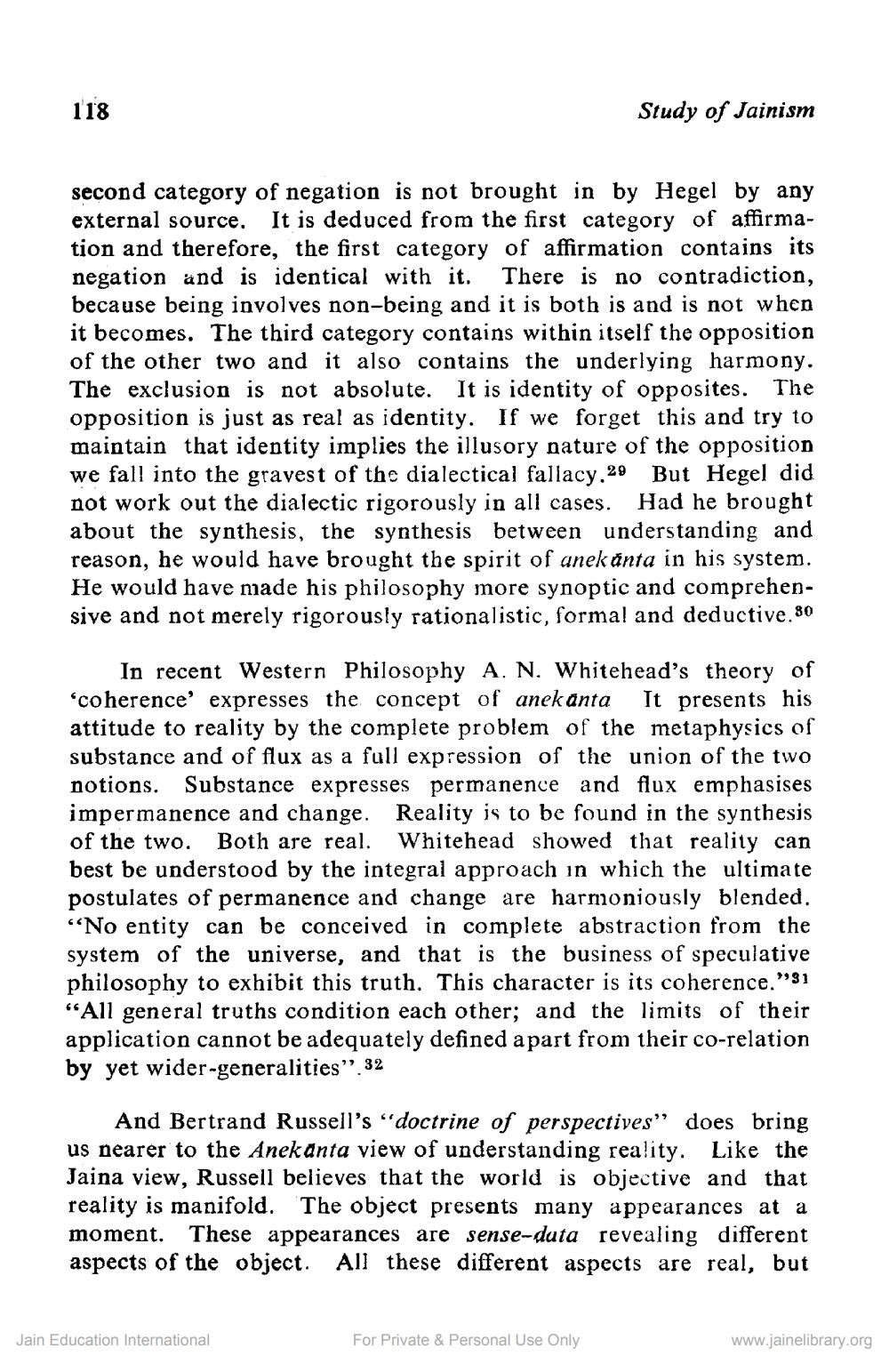________________
118
second category of negation is not brought in by Hegel by any external source. It is deduced from the first category of affirmation and therefore, the first category of affirmation contains its negation and is identical with it. There is no contradiction, because being involves non-being and it is both is and is not when it becomes. The third category contains within itself the opposition of the other two and it also contains the underlying harmony. The exclusion is not absolute. It is identity of opposites. The opposition is just as real as identity. If we forget this and try to maintain that identity implies the illusory nature of the opposition we fall into the gravest of the dialectical fallacy.29 But Hegel did not work out the dialectic rigorously in all cases. Had he brought about the synthesis, the synthesis between understanding and reason, he would have brought the spirit of anekanta in his system. He would have made his philosophy more synoptic and comprehensive and not merely rigorously rationalistic, formal and deductive.80
Study of Jainism
In recent Western Philosophy A. N. Whitehead's theory of 'coherence' expresses the concept of anekanta It presents his attitude to reality by the complete problem of the metaphysics of substance and of flux as a full expression of the union of the two notions. Substance expresses permanence and flux emphasises impermanence and change. Reality is to be found in the synthesis of the two. Both are real. Whitehead showed that reality can best be understood by the integral approach in which the ultimate postulates of permanence and change are harmoniously blended. "No entity can be conceived in complete abstraction from the system of the universe, and that is the business of speculative philosophy to exhibit this truth. This character is its coherence."31 "All general truths condition each other; and the limits of their application cannot be adequately defined apart from their co-relation by yet wider-generalities" 32
And Bertrand Russell's "doctrine of perspectives" does bring us nearer to the Anekanta view of understanding reality. Like the Jaina view, Russell believes that the world is objective and that reality is manifold. The object presents many appearances at a moment. These appearances are sense-data revealing different aspects of the object. All these different aspects are real, but
Jain Education International
For Private & Personal Use Only
www.jainelibrary.org




